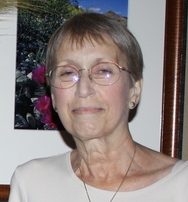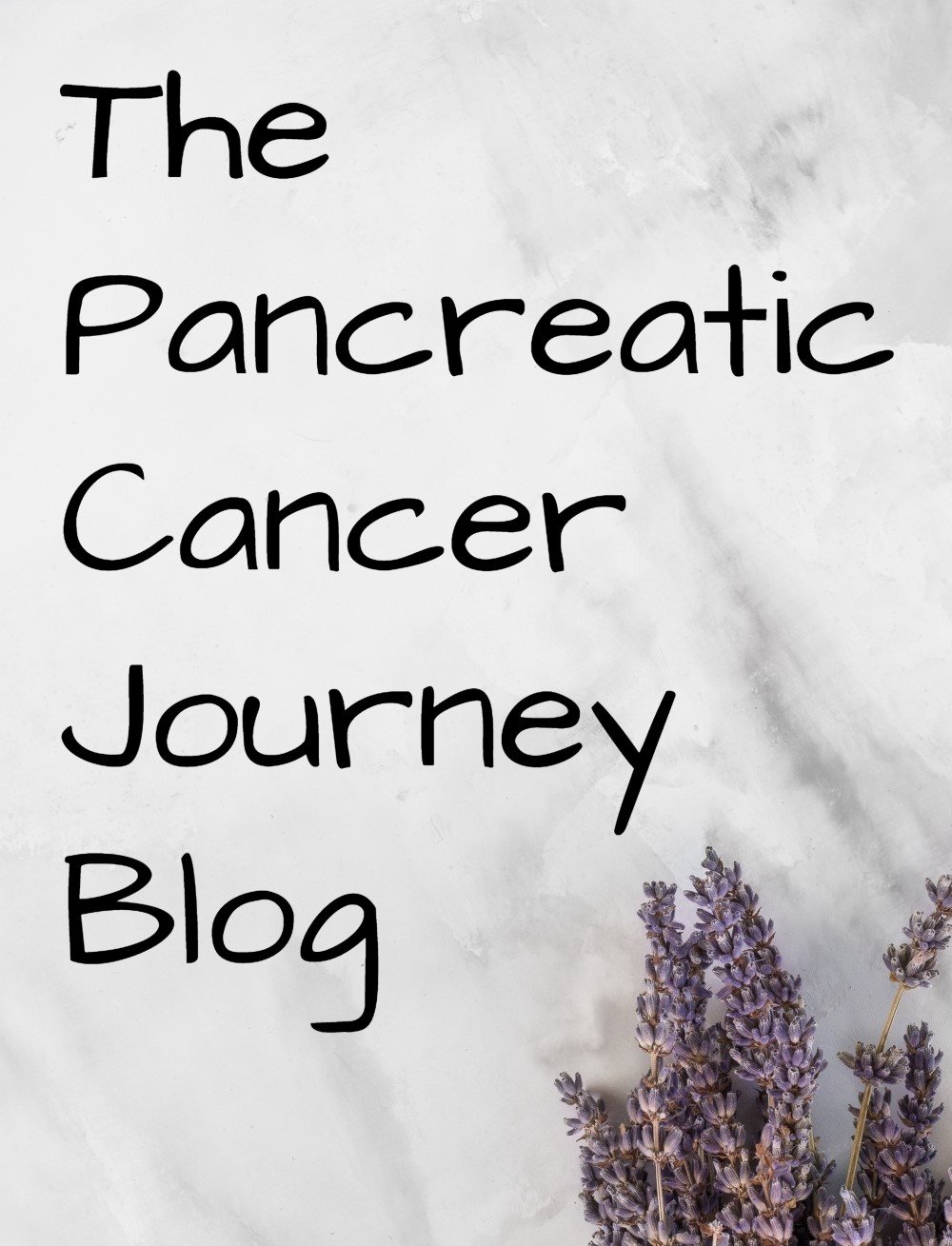Chemo Brain: Is It Real?
The answer is Yes!
Chemo Brain is real. At least, it's real in our world. Doctors, scientists and researchers may still be debating it's existence, but mom has no doubt. Chemo brain is causing havoc with her life.
As if pancreatic cancer and the treatments weren't bad enough, now we can throw in mental confusion, memory lapses, loss of concentration and general fuzziness to the mix.
So much fun...NOT!
Mom hates the following picture, but is willing to share it, because it illustrates pretty much how she's feeling lately:

And here's the close-up:

Zoned out. Spaced out. Groggy. Fuzzy. Murky. Miserable.
In a nut shell. Mom feels pretty much how she looks. She has trouble concentrating, has become increasingly forgetful, often struggles to remember simple words, and has a general mental fogginess that is so unlike her.
Most patients call it chemo brain or chemo fog. Doctor who recognize it, call it chemotherapy-induced cognitive impairment.
So what, exactly is chemo brain?
Many doctors disagree about the why of this mental haziness, but they do agree that many patients complain of one or more of the following when undergoing chemotherapy:
• Forgetting things that they usually have no trouble recalling (memory lapses)
• Trouble concentrating (they can’t focus on what they’re doing, have a short attention span, may “space out”)
• Trouble remembering details like names, dates, and sometimes larger events
• Trouble multi-tasking, like answering the phone while cooking, without losing track of one task (they are less able to do more than one thing at a time)
• Taking longer to finish things (disorganized, slower thinking and processing)
• Trouble remembering common words (unable to find the right words to finish a sentence)
The debate about this chemo fog centers on whether the chemotherapy is actually the cause of concentration and memory problems in cancer survivors. Many cancer survivors with memory problems still score well on cognitive tests, leaving doctors wondering whether chemo brain really exists.
Doctors offer many other possible explanations for this mental debilitation. For instance, brain problems could be caused or worsened by any one or any combination of these factors:
• The cancer itself
• Other drugs used as part of treatment (such as anti-nausea or pain medicines)
• Patient age
• Stress
• Low blood counts
• Sleep problems
• Infection
• Depression
• Tiredness (fatigue)
• Hormone changes or hormone treatments
• Other illnesses, such as diabetes or high blood pressure
• Nutritional deficiencies
• Anxiety or other emotional distress
As you can see, along with chemo, there are many different problems that can worsen brain function. It’s not always the fault of chemo when memory problems occur.
But the preponderance of cases leans heavily to pointing the finger at chemotherapy. A UCLA study done back in 2006 did show that chemotherapy can cause changes to the brain's metabolism and blood flow. The study concluded by saying that these findings may help to explain the disrupted thought processes and confusion that plague many chemotherapy patients. Newer studies are researching the types and doses of chemo the patients had, anemia, other cancer-related symptoms (like tiredness), and genetic differences among people to see if these factors are linked to a higher risk of chemo brain.
Obviously, more studies and research needs to be done. But in the meantime, what do we do about the Chemo Brain we are dealing with?
First of all, you are not stupid or crazy. You just have a side effect that you have to learn to manage. As with nausea or fatigue, we learn to deal. And here are some coping techniques that have helped mom. Addressing the issue of chemo brain has certainly given her a little more confidence to face this newest atrocity on the pancreatic cancer journey:
• Use a detailed daily planner. Mom has a small planner/notebook by her recliner and uses it constantly, even keeping track of her pain med doses. She takes the notebook with her to doctor appointments, grocery store, etc. This has helped her keep track of appointments, “to do” lists, important dates, websites, phone numbers, even books she's read (yes, that's how forgetful she's been - can't even remember what books she's read...)
• Exercise your brain. We heard this over and over. But with her brain so muddled this seemed an impossible task. Even watching a movie often taxed her concentration. We did, however, find that a simple game on her iPod, Words with Friends, kept her brain challenged and active. The game was easy because it only took a minute or so of her time for each play and then she could put it down. Currently she is playing games with several of her friends and two of her grandchildren, and me. And believe it or not, she has beaten the pants off me several times - even with Chemo Brain! That's just wrong!
• Get enough rest and sleep. Easy to do as she falls asleep in the middle of a conversation now...
• Exercise your body. Regular physical activity is not only good for your body, but also improves your mood, makes you feel more alert, and decreases tiredness. Mom found that even a walk to the mailbox was good. Strive for easy goals. You don't have to do a marathon. Anything to get moving will help.
• Set up and follow routines. Keeping a regular daily schedule seems to help mom. The days that are filled with doctor appointments, errands or visits really seem to exacerbate the mental confusion.
• Don’t try to multi-task. Focus on one thing at a time. And this goes for converstations especially. Mom is easily distracted if more than one person is talking to her.
• Ask for help when you need it. Friends and loved ones can help with daily tasks to cut down on distractions and help you save mental energy. Mom's friends have been great, jumping in to help with many things like running errands, cleaning house and starting dinner for her. We are always so grateful for each and every moment they give. And this leads to the next tip:
• Tell family, friends, and your health care team about the problems you sense you are having with memory or thinking. We all saw what mom was experiencing before she ever said anything. It was a hard conversation to have. We didn't know how she would take it if we mentioned her lapses, and she didn't want to admit her weakness. Once she said, I'm having trouble remembering things, it was such a relief and it opened the door to a real conversation with how to manage this new side effect.
• And finally, learn how to laugh at yourself. Mom is already good at this. We laugh a lot in our family, mostly at our own expense, in a nice way of course! Our favorite story, as of late, is one mom tells on herself. She and Dad went to the grocery store and because she's more tired than usual, she decided to take one of the motorized buggies. Simple, you'd think. Well, mom almost mowed down a toddler, took out a shelf of canned goods and ran into the door when leaving. Not a good day at the local grocery store! But she laughed and said they should make you take a driving test before giving you a cart. Word of advice: watch out for those old people on carts in the store. Just saying.....
Chemo Brain is not a new phenomenon. As I've researched the problem, I found several good blogs and posts of actual cancer survivors describing their experiences. One of the best is by Noreen Fraser at her Staring Down Cancer column. If you feel like your brain is being fried on chemo, then check in with Noreen. She can relate.
Chemo brain symptoms can be frustrating and debilitating. With time, you'll find ways to adapt so that concentration will become easier. It's hard to see my mom, who is so articulate and vibrant, struggle to find the right word. I hate this part of the journey. And that's the honest truth. But the alternative is not having her here to laugh with, to hug and to love. I'll take the chemo fog anyday.
Return to Chemotherapy Side Effects from Chemo Brain
Return to the Home Page for Pancreatic Cancer Journey
Copyright © PancreaticCancerJourney.com
Nothing on this website should be construed
to constitute medical advice.




